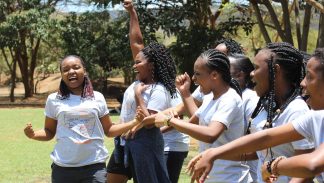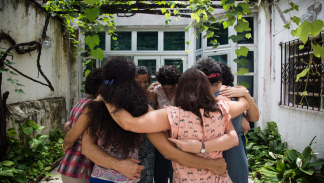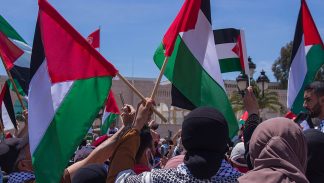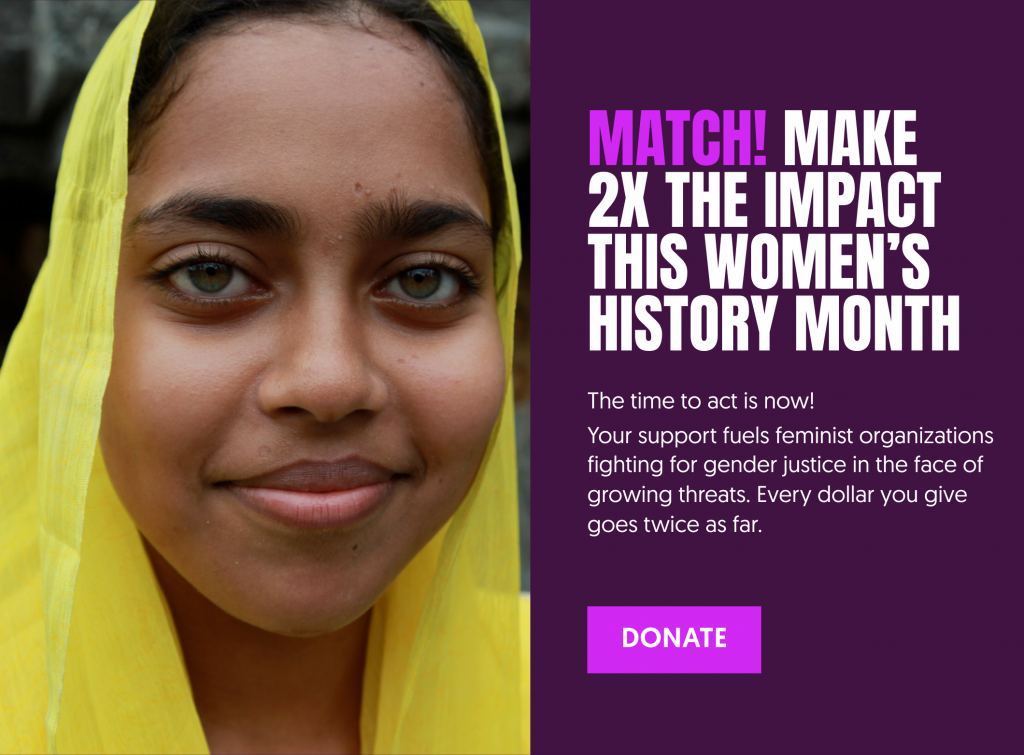Women’s groups in the DRC are demanding justice
For women and girls in northeastern Democratic Republic of Congo (DRC), rape is a constant threat. Sexual violence has been used as a weapon of war to control, humiliate, and intimidate millions of women and girls since conflict broke out in 1996. A weak functioning government in the area, a breakdown of social norms due to violence, a lack of respect for the rule of law, readily-available guns, and a destabilized society as a result of a struggle for the country’s national resources have allowed rape to become tragically endemic in the region.
Justice remains beyond reach for most survivors. The perpetrators largely go unpunished. Armed groups that used rape as weapon of war are not brought to justice, but instead given amnesty and integrated into the national army or let into general society, where they rape once more. Most women and girls do not report their rapes, as those who do are blamed, even shunned by their communities. Survivors tell of being thrown out of their homes by their husbands or parents and of being considered a shame to their families. Despite the signing of a peace accord in 2003 (and another in 2013), the violence continues in eastern DRC. In November 2012, hundreds of women and girls were raped in a single horrific day in Minova when Congolese soldiers– who had just been defeated by rebel fighters in Goma – retreated there.
However, many women and girls in the DRC are also experiencing sexual violence at the hands of ordinary civilians – teachers, neighbors, and other men who have never been in the military or have been discharged. Congolese women’s groups explain that because of an ineffective justice system, poor governance, and women’s inferior social position, the sexual violence against women that characterized the conflict has infiltrated daily life in eastern Congo, including classrooms and public spaces.
To understand the context today for women, one must understand the Congo itself. After experiencing 32 years of dictatorship where freedom of expression was ruthlessly repressed, in 1996 Congo entered a period of political instability and war that involved several neighboring countries. Women live under the dual cloak of politically-imposed silence as well as silence due to their gender and bear the responsibility of maintaining their families in a context of diminishing resources and increased sexual violence, especially in conflict zones. With an estimated $24 trillion in mineral reserves, the Congo is arguably the richest country on earth in terms of natural resources. But unfortunately, the enjoyment of this wealth has been marred by a long period of political instability, corruption and violent conflict in the eastern region. With the complete decline of public institutions and cost-cutting by industries across the country, the standard of life has plunged to a level unparalleled in the majority of African countries. The social service sector reflects some of the worst indicators in the world for infant and maternal mortality, education access, and employment.
Women’s inequality persists in this broader context, and women are often restricted to traditional care-taking roles due to lack of education, discriminatory attitudes toward women, and a lack of economic rights such as land and inheritance rights. In this web of structural inequality, poverty, and violence, women are the poorest of the poor.
But Congolese women are bold and courageous. Congolese women and women’s groups are fearlessly organizing to build peace, stability, and respect for women’s human rights.
In 2004, inspired by these women and starkly aware of the lack of social change and women’s rights funders in the Great Lakes region (composed of DRC, Rwanda, Burundi, and Central African Republic), Global Fund for Women decided to prioritize support to the efforts of local Congolese women’s groups. Since then, Global Fund for Women has quadrupled support to these women’s groups, which included funding for more than 204 initiatives in eight provinces in DRC. The groups Global Fund for Women funds are led by women who have deep roots in Congo, and who understand that driving a broad agenda to respect and advance human rights is key to addressing systemic sexual violence. These Congolese women’s groups are working to address the issues holistically through initiatives focused on educating women and girls in various communities on their rights and empowering them with economic and leadership opportunities, as well as access to education and literacy trainings. With an eye toward addressing the root causes of instability in DRC to drive sustainable peace, Global Fund for Women grantee partners are promoting women in leadership who will govern responsibly and champion women’s human rights, create new job opportunities and diversify the economy, and organize peace committees to facilitate local conflict resolution. As bold human rights defenders themselves, women leaders are also advocating for a climate where freedom of expression is tolerated and human rights activists are safe.
Learn more about the work of PAIF, one of Global Fund for Women’s grantee partners in northeastern DRC, in this interview with women’s rights activist and PAIF Executive Director Immaculee Birhaheka; and hear directly from women PAIF supports in this story featuring the voices of three Congolese women and brave rape survivors.
Recognizing the importance of women’s groups and activists working together to sustain peace and advance women’s human rights, Global Fund for Women has also organized major meetings and gatherings in the DRC and throughout the Great Lakes region. The Great Lakes region has long had strong women leaders working at the grassroots level to improve communities while advocating for women to be included in peacebuilding and working to embed women’s human rights in laws and social norms. Most recently – in May 2015 – Global Fund for Women brought together 50 women from throughout the Great Lakes region in Goma. This meeting enabled activists and leaders to learn how to participate in government peace processes, share strategies, organize, and strengthen the regional movement for women’s rights.
Amidst the turmoil, courageous Congolese women and women’s groups are a source of hope because of the tireless work they are doing to drive the movement for peace, justice, and equality. The creativity of this generation of young leaders promises bold steps to build the momentum of the women’s rights movement. With women at the helm working to address root causes of the conflict and advance human rights, the Democratic Republic of Congo will realize a brighter future where women can speak out, systemic sexual violence will halt, and justice can be realized.



